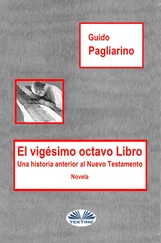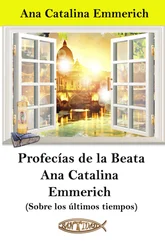“They tried to kill him,” she said, flatly. “Who?” I said, turning back toward the river and Shangri-La to hide my face from her. She did not immediately answer, but I already knew. Out of the corner of my eye I noticed her lips moving in silence, as if trying to find the right words. “The National Security Advisor,” she finally said, one slow word at a time. My mouth dried out. I could not speak. “A car bomb. Crossing the Bosphorus,” she said; and then, mistaking my horror at her intrusion for concern: “But he’s unharmed.” We were now facing each other. I had trouble breathing. My knees gave out. On the ground, I covered up by pretending to examine a weed. How had she found out that I knew him? Was she spying on me? At least she had used his official title, instead of his more intimate name. I had nothing to do with Rafael Cohen. Since I left Elmira, thirty years ago, aboard the last refugee bus to make it out of the starving heartland, I had hardly thought about him. I was already erasing Elmira as the bus took off, and I waved back to my parents, grandmother, and godparents Genoveva and Ezequiel Cohen, all of whom preferred starvation at home to begging in the city. Rafael always sent me Christmas cards, but we had met again only twice, at my parents’ funerals. The last time I had seen him was seven years ago, at my mother’s wake, right before he published the essay that would propel him from academia to the West Wing. He did not seem to resent that I did not reciprocate with his burials: when his mother and then his father had died I just sent Hallmark condolences. Still, Rafael Cohen belonged to me, to my most secret memories, not to McCabe.
“I heard it on the radio,” McCabe said, as if reading my mind. It was as simple as that. No spying, no mental eavesdropping, no conspiracy: just a regurgitation of the radio news. Like old McCabe used to do. How she would have riffed on this one, from appetizer through dessert. I suddenly missed old McCabe, missed her bombastic speeches, her heft, her booming voice, her unshakeable certainty that she was always right, and so rich she could always get her way. My eyes moistened, I had lost my good, old McCabe, my pal in reverse, the one who had been with me all these years, the one that I personally had to kill. Someone else had beaten me to it. I suddenly hated the new McCabe I had in front of me, shifting instantly from neutral to two-hundred and fifty miles per hour of murderous hatred. The McCabe before my eyes, the gaunt impostor, the body snatcher, the miserable mutant, must have noticed, because she said, “I’m sorry if I upset you. It’s a slaughterhouse out there,” and she gestured vaguely toward the flaming horizon. I stood up, wanting to hit her. She looked at me with curiosity. My white-knuckled fists seemed to hold a particular fascination for her. She knew, and she was going to let me do it. I had what I wanted, the Nuremberg trial, from beginning to end, in just one second, not through any elaborate plan on my part, but nonetheless happening right here, and now. I could push her off the edge. I should have. For what old McCabe and Elmira had done to me. And for something that now seemed even more monstrous, for what she had done to old McCabe. We were frozen for a few seconds, silent-movie style: me with my fist raised, and her looking at me sweetly, like the girl in Broken Blossoms gazes at the Chinaman who has just saved her. Then I turned and ran away.
When Pedro Andújar and Jacinto Benavides left the Buena Esperanza, each with a gold onza sewn inside the seam of a shoe, they decided to part ways. It was easier, they reasoned, for one marrano to pass unnoticed in the chaotic port, than for two. Jacinto Benavides went off into the free Negro quarter to find a woman and drink himself to death. He had time for the first, but not for the second. A month later, he was knifed by his woman’s common-law husband who, in jail for murdering another Negro, was let out unexpectedly because the Spanish alguacil needed room to accommodate some tobacco smugglers who tried to skimp on their bribes. The murderer and the woman—in reality, a fifteen-year-old mulatto girl who, unbeknownst to her, was carrying Jacinto Benavides’ daughter—dumped his body in the bay after removing all his clothes. They knew that Jacinto Benavides had been circumcised and might be a marrano. This, they felt, was none of their business, since it was a squabble among Spaniards, a marrano being just another kind, adept at some witchcraft that worked only in Spain, and not the island. Just in case, they cleansed the mulatto girl’s hut, where the murder had taken place, using herbs and chants that she had learned from her African mother. The clothes and shoes were sold to a street peddler, who may or may not have found the gold onza inside the shoe. Someone at some point must have, because poor people never threw away shoes or clothes, but used them until they disintegrated upon their bodies, at which point the gold onza must have fallen on the ground and made someone very rich and very happy.
Pedro Andújar walked away from the port as soon as he found a quieter street. In San Cristóbal de La Habana, on the first days of the year 1625, a quieter street was one where the sweaty, screaming mass of soldiers, pigs, prostitutes, beggars, half-naked urchins, criminals, dogs, and street vendors with their greasy, smoky braziers frying pork, plantains, and cassava began to thin out, replaced by the tiny shacks of the mulatto cobblers, leather workers, cabinet makers, tailors, mercers. A hurricane had struck two months earlier, opening gaps in the fortified wall built to protect the city against flooding and attacks by the English, French, and Dutch. Most of the artisans’ shacks were now missing something, but their owners continued to work inside them as if the roof, or door, or walls were still there, like the actors in Fuenteovejuna , sitting inside their painted cardboard shops pretending they were real. Pedro had seen the play performed by an itinerant troupe in Cádiz, right before he first sailed for the New World. He had been in San Cristóbal de La Habana three times before, the last time two years earlier, but he had never been separated from Jacinto Benavides, and had never left the port area, where Jacinto said a man could find all he needed to recover from the brutal months at sea: drink, food, and women, in order of importance. On his earlier visits, he had been a glutton for all of these, particularly nísperos and mulatto women, both of which were abundant here and became one in his mind. He had never seen either before. He drank to please Jacinto, who loved drink more than anything else in the world, even if it made him cry and speak in broken Ladino, which could have gotten them both burnt at the stake. Pedro and Jacinto had been inseparable for ten years, from the Canary Islands, where they had both enlisted in the Buena Esperanza at the age of fifteen, to Cádiz; from there to Veracruz; and then back a year later by way of San Cristóbal de La Habana. They were inseparable, but only on land, when no one was watching them. On board the Buena Esperanza, each pretended the other did not exist. If forced to speak to each other in public on the boat, they would do so with distant courtesy. Neither wanted to be a marrano for the rest of his life.
Pedro had never uttered that word, marrano. Growing up in Santa Cruz de Tenerife, he was terrified that if he did, the word would stick to him forever, give him bad luck, make him grow a curly tail and stiff hairs that would stick out of his nose. He no longer checked the base of his spine every morning when he woke up, as he had done ever since a playmate had called him marrano. That was the first time he had heard it. However, he was now doubly repulsed by the word, because he had become thoroughly Christian in culture, while still deeply Hebrew in temperament, neither of which he knew yet, and pigs are loathsome to both from different angles. Jacinto, though, had no allegiance to anything outside his physical appetites, or so he claimed, though Pedro remembered Jacinto’s drunken tears and pseudo-Ladino babble, his ostentatious way of stuffing himself with pork at every opportunity. Jacinto laughed at the word marrano and, when they were alone, to see Pedro squirm, he liked to sing softly in his ear an obscene ditty he had composed, rhyming marrano with ano (anus), and ojo del amo (eye of the master) with ojo del ano (asshole). Sometimes Jacinto would just mouth his rhyme at Pedro, snorting and wiggling his nose like a pig, shaking his big frame and the curly blond locks that San Cristóbal de La Habana’s mulatto girls fought with each other to touch, so that Jacinto never paid for sex.
Читать дальше












